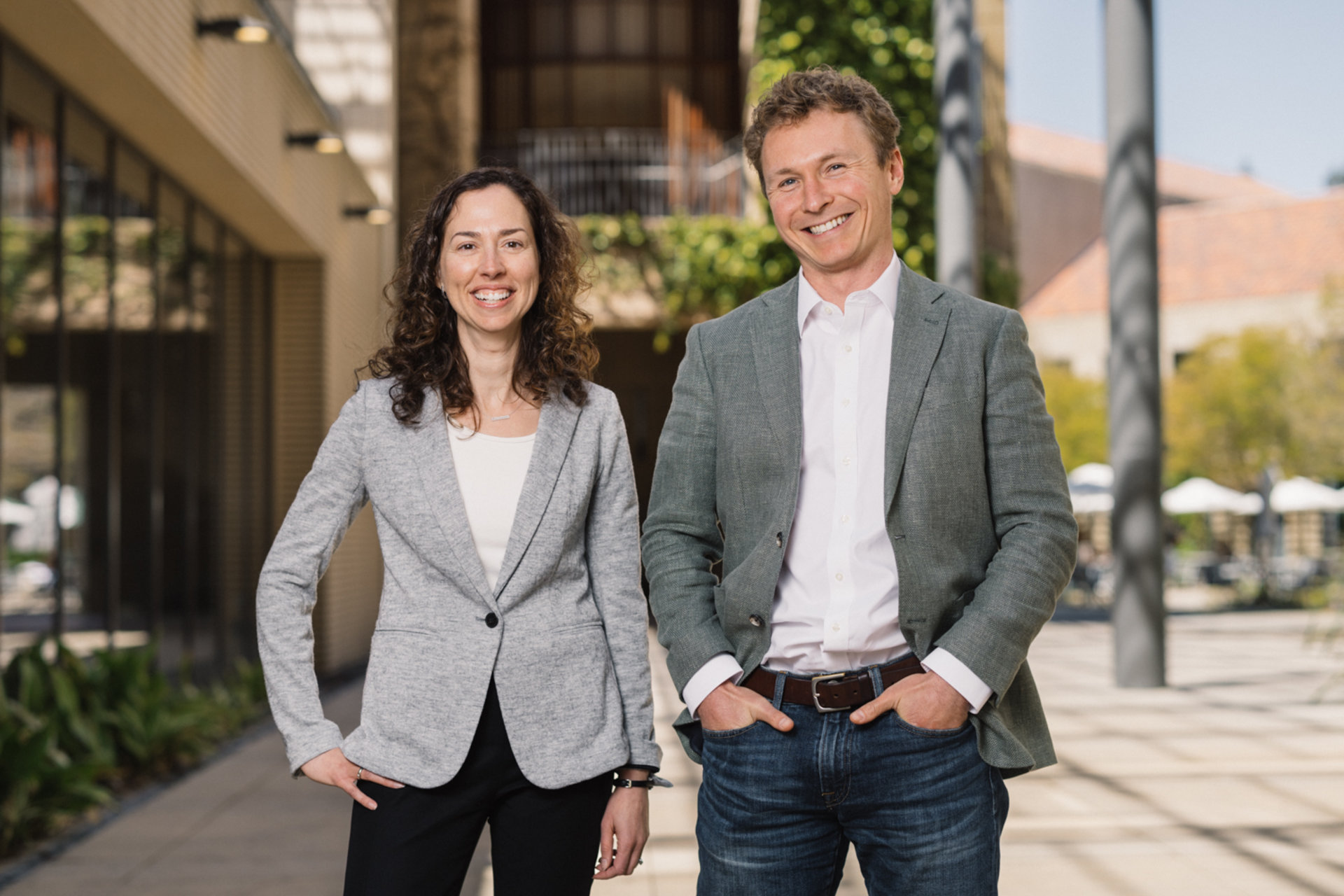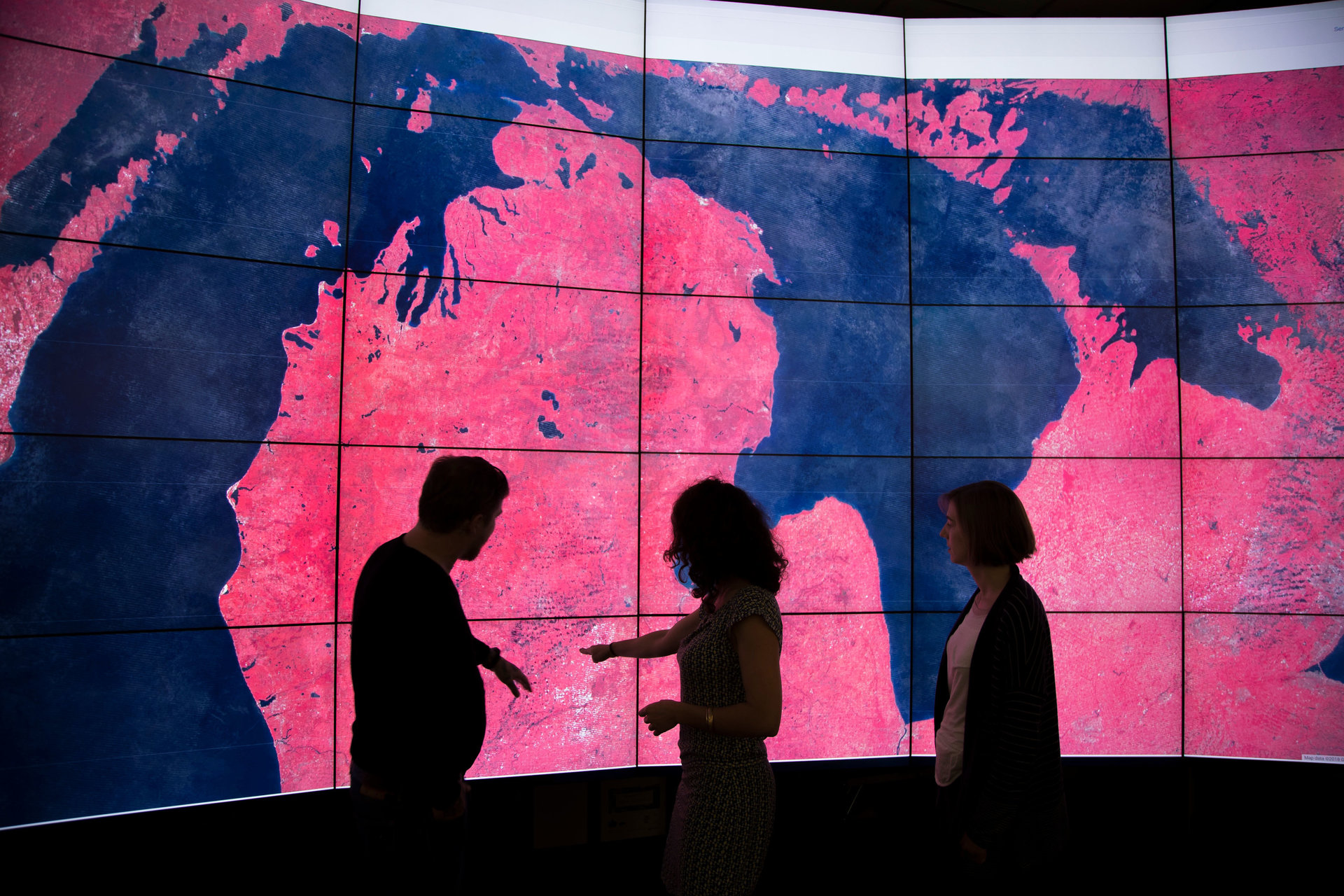Pamela Matson receives Excellence in Teaching Award
Matson was recognized for her collaborative learning approaches, propagation of diverse forms of knowledge, and optimistic mentorship.

Earth system science professor Pamela Matson has been awarded Stanford Earth’s 2022 Excellence in Teaching Award for her collaborative learning approaches, propagation of diverse forms of knowledge, and optimistic mentorship. In addition to her work in the classroom, she is recognized for her leadership, which led to the creation of hugely popular interdisciplinary degree programs that facilitated environment and energy collaborations, fostered social-environmental systems thinking, and led to the university’s first sustainability degree program.
Matson is known around the world for her work in sustainability. At Stanford, her leadership and curriculum development have helped bring the topic to the forefront of the university’s educational opportunities – and that influence will have global impacts through the students she has inspired.
“As a CS student, SUST 210 was my first sustainability course at Stanford … and it has inspired my future endeavors at the intersection of AI and climate,” wrote a computer science coterminal master’s student who nominated Matson for the award. “I truly admire her strong effort to create a rich and fun learning environment.”
Over her decades at Stanford, Matson has worked to develop learning opportunities like SUST 210: Pursuing Sustainability: Managing Complex Social Environmental Systems (ESS 230), which provides a systems framework for understanding and managing social-environmental systems, with the ultimate goal of inclusive, equitable, intra- and intergenerational human well-being.
“Pam is very humble and engaging and cares about each person in the room,” a fellow instructor said. “She’s a teacher who really values learning from others. Whether they’re younger students or professionals, she always creates dialogue and space for collaborative learning.”
In 2021-22, she co-taught ENVRES 280: Introduction to Environmental and Resource Systems, which she helped design as an introductory cohort course for law and business students in the Emmett Interdisciplinary Program in Environment and Resources (E-IPER). Matson herself spans the worlds of academic research and practice – she is a preeminent scholar in multiple fields, a leader in the academic community, and deeply connected to the worlds of conservation and sustainability action.
“We all talk about it – working across disciplines, bridging academia to practice and to work – but it takes human bridges, it takes people with feet in both camps, and I think Pam can really understand both and translate between them,” according to a faculty colleague.
In 2017, her efforts to bring sustainability learning opportunities to Stanford culminated in the Change Leadership for Sustainability Program at Stanford Earth. Built in partnership with Julia Novy-Hildesley, it aims to prepare students and professionals to be “a new kind of leader, capable of radically accelerating the transition to a sustainable society.” The program’s coterminal master’s degree is one of the fastest growing master’s programs in Stanford’s history, with 90 students from over 30 different undergraduate majors.
“Pam has played a critical role at Stanford in understanding the importance of both the social and natural sciences,” Novy-Hildesley said. “Sustainability is about human behavior and we need the social sciences to complement what we know from the natural sciences.”
Prior to joining Stanford in 1997, Matson was a professor at the University of California, Berkeley, for five years, and a research scientist at the NASA-Ames Research Center for 10 years. She served as founding chair of the National Academies Roundtable on Science and Technology for Sustainability, and currently serves as chair of the board of the World Wildlife Fund–US, and as a board member of the World Wildlife Fund–International.
“She distills the insights of the literature with an eye toward how these insights can actually help people not only make better decisions, but drive the kind of change that has to happen,” a faculty colleague noted. “I think for students, that’s particularly inspiring because they’re not all going to be academics.”
As a mentor, Matson has guided countless students through her approach to systems thinking, exuding optimism and challenging them to dig deeper into complex problems.
“She often ends really serious conversations or meetings by saying, ‘Make sure to have fun,’ and emphasizing that this should be something that I enjoy for the process,” according to a PhD student in Earth system science. “I think that’s really meaningful.”
From 2002 to 2017, Matson served as dean of Stanford Earth, helping to broaden the school’s research and teaching around Earth’s resources and the environment. Matson and her colleagues also created an Office of Multicultural Affairs – now the Office of Diversity, Equity and Inclusion – and she helped grow the school’s female faculty from around 10 percent to 29 percent.
“Even if, as a student, we’re not being directly taught by her, we see Pam making institutional change, and that is inspiring because it shows us that universities can change, it shows us universities have the ability to grow,” a PhD student said.
Matson helped create the Woods Institute for the Environment, where she is a senior fellow, and the Precourt Institute for Energy. She also founded E-IPER, which trains graduate students to combine science, technology, and policy knowledge and approaches in their research and teaching.
As dean, she launched the O’Donohue Family Stanford Educational Farm on 6 acres near Campus Drive and Santa Teresa Street. The farm harvests produce served across campus and enables students to test new ideas and learn about sustainable agriculture. The space hosts classes from across campus, in addition to field trips, student club activity, and community lectures.
Stephan Graham, the Chester Naramore Dean of the School of Earth, Energy & Environmental Sciences, worked closely with Matson as senior associate dean of the school when she served as dean. Students over the years have told him how “knowledgeable, impassioned, and dedicated she is, particularly in issues around sustainability in society,” he noted.
Graham said the school’s teaching award should be understood broadly, to honor not just teaching in the classroom, but the whole educational mission – and in that effort, Matson is a paragon.
“As dean, Pam was the driver for the school's expansion into sustainability and climate change through hiring of talented new faculty in those areas.” Graham said. “Further, she was an advocate and catalyst for parallel growth in areas of education that are aligned with the Stanford Doerr School of Sustainability. In my view, these are her principal contributions and her legacy.”
Matson was honored as a MacArthur fellow in 1995 and is and member of the U.S. National Academy of Sciences.
Explore More
-
The Stanford Forum on the Science of Energy Transition brought together scientific experts, technology innovators, and industry leaders to explore practical pathways to a decarbonized future.
-
A unique hands-on class teaches Stanford Law School students how to work with early-stage companies that have the potential to move the needle on climate and sustainability.
-
The first group of scholars supported under the new Sustainability Accelerator Fellowship program will focus on the challenge of removing billions of tons of greenhouse gases annually from Earth’s atmosphere by the middle of this century.



